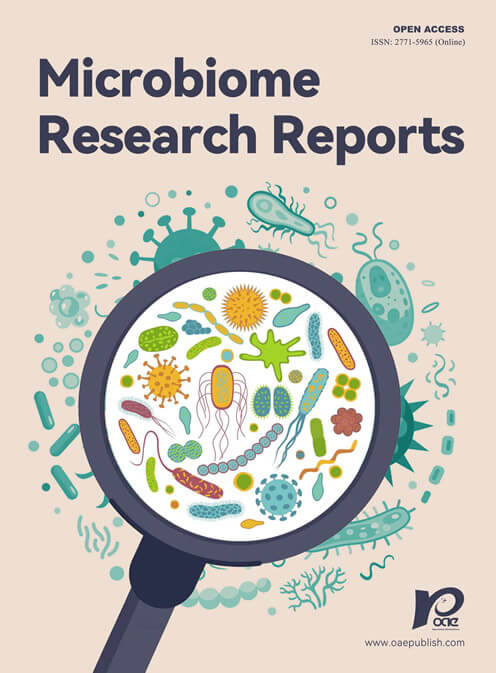REFERENCES
1. Freeman M. The World Mental Health Report: transforming mental health for all. World Psychiatry 2022;21:391-2.
2. Mazza MG, Palladini M, Poletti S, Benedetti F. Post-COVID-19 depressive symptoms: epidemiology, pathophysiology, and pharmacological treatment. CNS Drugs 2022;36:681-702.
3. Penninx BW, Milaneschi Y, Lamers F, Vogelzangs N. Understanding the somatic consequences of depression: biological mechanisms and the role of depression symptom profile. BMC Med 2013;11:129.
4. Spellman T, Liston C. Toward circuit mechanisms of pathophysiology in depression. Am J Psychiatry 2020;177:381-90.
5. Cipriani A, Furukawa TA, Salanti G, et al. Comparative efficacy and acceptability of 21 antidepressant drugs for the acute treatment of adults with major depressive disorder: a systematic review and network meta-analysis. Focus 2018;16:420-9.
6. Raes J. Nifty new tools for microbiome treatment design. Nat Rev Gastroenterol Hepatol 2023;20:77-8.
8. Barandouzi ZA, Starkweather AR, Henderson WA, Gyamfi A, Cong XS. Altered composition of gut microbiota in depression: a systematic review. Front Psychiatry 2020;11:541.
9. Simpson CA, Diaz-Arteche C, Eliby D, Schwartz OS, Simmons JG, Cowan CSM. The gut microbiota in anxiety and depression - a systematic review. Clin Psychol Rev 2021;83:101943.
10. Tian P, Chen Y, Zhu H, et al. Bifidobacterium breve CCFM1025 attenuates major depression disorder via regulating gut microbiome and tryptophan metabolism: a randomized clinical trial. Brain Behav Immun 2022;100:233-41.
11. Zhu F, Guo R, Wang W, et al. Transplantation of microbiota from drug-free patients with schizophrenia causes schizophrenia-like abnormal behaviors and dysregulated kynurenine metabolism in mice. Mol Psychiatry 2020;25:2905-18.
12. Baske MM, Timmerman KC, Garmo LG, Freitas MN, McCollum KA, Ren TY. Fecal microbiota transplant on Escherichia-Shigella gut composition and its potential role in the treatment of generalized anxiety disorder: a systematic review. J Affect Disord 2024;354:309-17.
13. Doll JPK, Vázquez-Castellanos JF, Schaub AC, et al. Fecal microbiota transplantation (FMT) as an adjunctive therapy for depression - case report. Front Psychiatry 2022;13:815422.
14. Carlson PE Jr. Regulatory considerations for fecal microbiota transplantation products. Cell Host Microbe 2020;27:173-5.
15. Kazem YI, Mahmoud MH, Essa HA, et al. Role of Bifidobacterium spp. intake in improving depressive mood and well-being and its link to kynurenine blood level: an interventional study. J Complement Integr Med 2023;20:223-32.
16. Qian X, Tian P, Guo M, et al. Determining the emotional regulation function of Bifidobacterium breve: the role of gut metabolite regulation over colonization capability. Food Funct 2024;15:1598-611.
17. Dinan TG, Stanton C, Cryan JF. Psychobiotics: a novel class of psychotropic. Biol Psychiatry 2013;74:720-6.
18. Knuesel T, Mohajeri MH. The role of the gut microbiota in the development and progression of major depressive and bipolar disorder. Nutrients 2021;14:37.
19. Tian P, Zou R, Wang L, et al. Multi-probiotics ameliorate major depressive disorder and accompanying gastrointestinal syndromes via serotonergic system regulation. J Adv Res 2023;45:117-25.
20. Majeed M, Nagabhushanam K, Arumugam S, Majeed S, Ali F. Bacillus coagulans MTCC 5856 for the management of major depression with irritable bowel syndrome: a randomised, double-blind, placebo controlled, multi-centre, pilot clinical study. Food Nutr Res 2018;62.
22. Beekman E, Verhagen A. Clinimetrics: hospital anxiety and depression scale. J Physiother 2018;64:198.
23. Buysse DJ, Hall ML, Strollo PJ, et al. Relationships between the Pittsburgh Sleep Quality Index (PSQI), Epworth Sleepiness Scale (ESS), and clinical/polysomnographic measures in a community sample. J Clin Sleep Med 2008;4:563-71.
24. Svedlund J, Sjödin I, Dotevall G. GSRS - a clinical rating scale for gastrointestinal symptoms in patients with irritable bowel syndrome and peptic ulcer disease. Dig Dis Sci 1988;33:129-34.
25. Riemann D, Voderholzer U. Primary insomnia: a risk factor to develop depression? J Affect Disord 2003;76:255-9.
26. Zhang AZ, Wang QC, Huang KM, et al. Prevalence of depression and anxiety in patients with chronic digestive system diseases: a multicenter epidemiological study. World J Gastroenterol 2016;22:9437-44.
27. Díaz-Perdigones CM, Muñoz-Garach A, Álvarez-Bermúdez MD, Moreno-Indias I, Tinahones FJ. Gut microbiota of patients with type 2 diabetes and gastrointestinal intolerance to metformin differs in composition and functionality from tolerant patients. Biomed Pharmacother 2022;145:112448.
28. Zhou J, Zhang Q, Zhao Y, et al. The relationship of Megamonas species with nonalcoholic fatty liver disease in children and adolescents revealed by metagenomics of gut microbiota. Sci Rep 2022;12:22001.
29. Zhao RH, Zheng PY, Liu SM, et al. [Correlation between gut microbiota and behavior symptoms in children with autism spectrum disorder]. Zhongguo Dang Dai Er Ke Za Zhi 2019;21:663-9.
30. Zheng P, Zeng B, Zhou C, et al. Gut microbiome remodeling induces depressive-like behaviors through a pathway mediated by the host’s metabolism. Mol Psychiatry 2016;21:786-96.
31. Cheung SG, Goldenthal AR, Uhlemann AC, Mann JJ, Miller JM, Sublette ME. Systematic review of gut microbiota and major depression. Front Psychiatry 2019;10:34.
32. Mcguinness B, Harkin A. Rodent models of stress-induced depression: the link between stress and immune system related changes. In: Müller N, Myint A, Schwarz MJ, editors. Immunology and psychiatry. Cham: Springer International Publishing; 2015. pp. 33-62.
33. Miller AH, Maletic V, Raison CL. Inflammation and its discontents: the role of cytokines in the pathophysiology of major depression. Biol Psychiatry 2009;65:732-41.
34. Nettis MA, Pariante CM. Is there neuroinflammation in depression? Understanding the link between the brain and the peripheral immune system in depression. Int Rev Neurobiol 2020;152:23-40.
35. Capuron L, Ravaud A, Miller AH, Dantzer R. Baseline mood and psychosocial characteristics of patients developing depressive symptoms during interleukin-2 and/or interferon-alpha cancer therapy. Brain Behav Immun 2004;18:205-13.
36. Spencer SP, Fragiadakis GK, Sonnenburg JL. Pursuing human-relevant gut microbiota-immune interactions. Immunity 2019;51:225-39.
37. Gorjifard S, Goldszmid RS. Microbiota - myeloid cell crosstalk beyond the gut. J Leukoc Biol 2016;100:865-79.
38. Peterson LW, Artis D. Intestinal epithelial cells: regulators of barrier function and immune homeostasis. Nat Rev Immunol 2014;14:141-53.
39. Liu P, Liu Z, Wang J, et al. Immunoregulatory role of the gut microbiota in inflammatory depression. Nat Commun 2024;15:3003.
40. Tian P, Chen Y, Qian X, et al. Pediococcus acidilactici CCFM6432 mitigates chronic stress-induced anxiety and gut microbial abnormalities. Food Funct 2021;12:11241-9.
41. Yang H, Jiang J, Pei Y, et al. Pediococcus acidilactici CCFM6432 improves depressive behavior in mice by alleviating brain inflammation. Food Ferment Ind 2023:1-10. (in Chinese). Available from: https://link.cnki.net/doi/10.13995/j.cnki.11-1802/ts.037523. [Last accessed on 18 Sep 2024]
42. McGuinness AJ, Davis JA, Dawson SL, et al. A systematic review of gut microbiota composition in observational studies of major depressive disorder, bipolar disorder and schizophrenia. Mol Psychiatry 2022;27:1920-35.
43. Dao VH, Hoang LB, Trinh TO, Tran TTT, Dao VL. Psychobiotics for patients with chronic gastrointestinal disorders having anxiety or depression symptoms. J Multidiscip Healthc 2021;14:1395-402.









